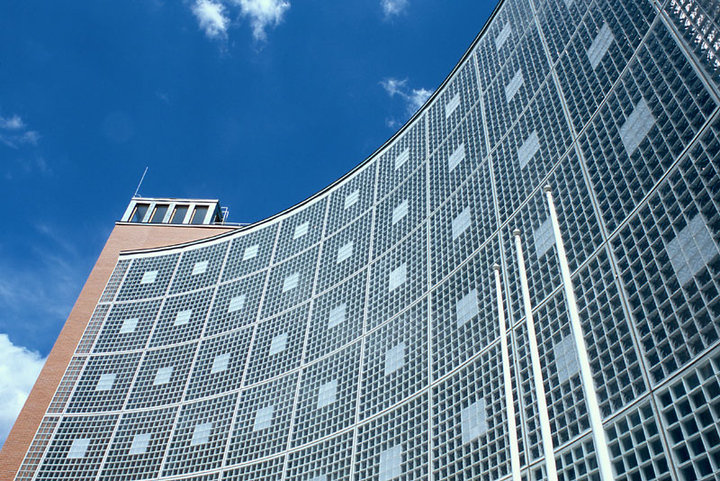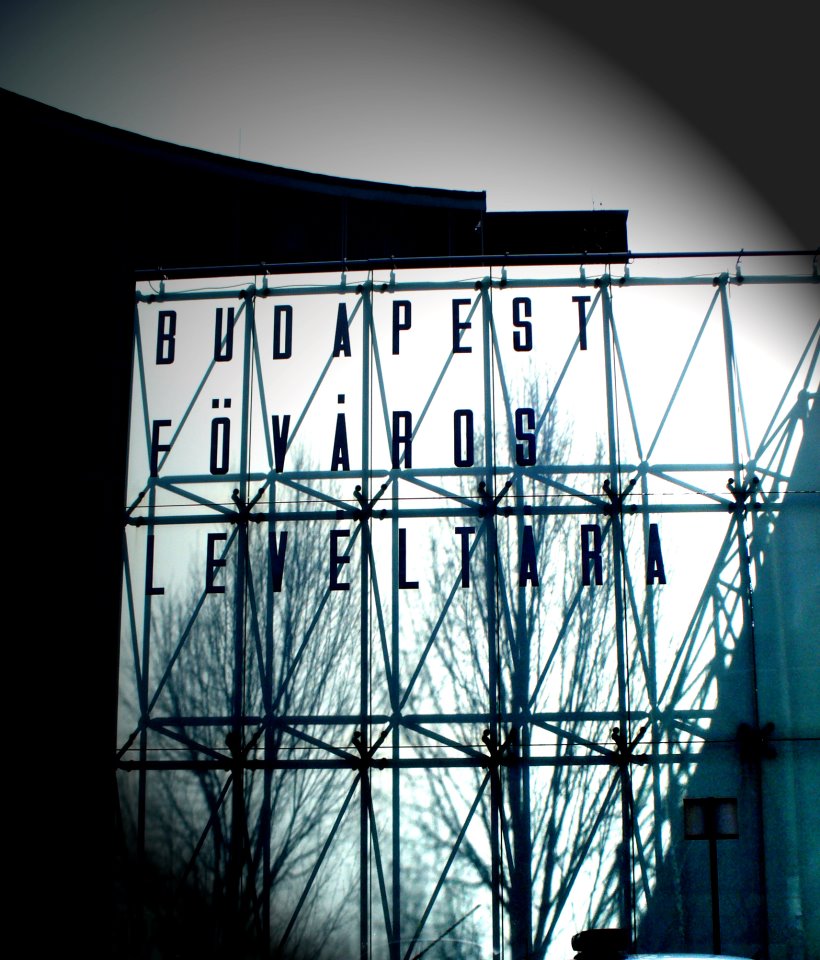There are no data remained about the conditions of preserving the records of the medieval Buda and Pest cities and only few documents are kept in the Archives from the period before 1686. The official documents regarding the regenerated city were held initially by the major or the notary, and then the municipal chancellery housed them. In line with the royal measures during the 18th century appointments were carried out for occupying archiviarius positions moreover safety way of preserving the documents in the city hall and its order were arranged as well. After 1873, the year of unification Buda and Pest, the archival documents were housed in apart from the old city hall of Pest, in the unused basement of the city hall of Buda, then in 1887 in the Újvárosháza [New City Hall] too.

At the turn of the 19th and 20th centuries the Central City Hall was moved to the Károly Barracks, where even a strong-room was available for keeping the records, but the prospective needs for storage were left out of consideration. The next most remarkable proceeding was the rescue of the vast collection, which were placed in the undercroft of the St Stephen’s Basilica during the World War II in 1943-44; while the most valuable documents were put under the custody of the National Bank of Hungary. After adventures in West, these records were taken back in undamaged state. However the bulk of those which remained in the City Hall were perished during the siege. Along with others the copies of the state registers, the collection of bylaws, and the archives of foundations were destroyed by flames. Furthermore, the records series (created in the interwar period) of several municipal departments were damaged badly as well. From the World War II until the 1960s only the workrooms were available in the central building of the city management for the Archives. Thus some records of the Archives stayed permanently in the Basilica, where offices were established then. In the 1960s owing to the renovation of the City Hall and building of new repositories, the high level of crowdedness was slightly decreased.
The most precious medieval documents were moved back to the restored store of the City Hall. The Municipial Council resolved to establish a new building for the Archives in order to solve finally the problems with housing, in 1972 as part of preparation for the centenary of the unification of Buda and Pest. The building of the Magyar Szentföld Church (located in II. ker. Heinrich István u.) was designated for being a temporary home of the most endangered part of the records held in the Basilica. The Church is just half-built, but due to its oval cupola it has been classified as a historic monument. After the enthusiasm around the centenary lessened, the establishment of a new building did not come into question and in 1976 the finalisation of that department was resolved. In the 1970s apart from the repositories, microfilm reading room, restoration lab and bookbindery were founded as well. The documents suffered in the undercroft of the Basilica were disinfected and along with other record groups the bulk of records belonging to the Archives were moved to the reconstructed building of the former Misura coach-factory in Józsefváros district located in the Leonardo da Vinci köz. However that did not mean the final solution of the housing, thus the leadership of the institution rose the issue of establishing a unified, central building for the Archives.
In 1998 the Teve utca located in the XIII. kerület [district] was chosen for that purpose, and the tender for the planned building in it was won by Budai Építész Műhely under the leadership of János Koris. The fact that the Municipality Budapest bore exclusively the burdens made possible the implementation of the plan. Gábor Demszky, mayor of Budapest laid the foundation-stone in 11 October 2002, and the new establishment was opened in 2004. The Budapest City Archives keeps 38 000 linear meters of documents, preserves and delivers them for researchers and customers in the new building which possesses 23440 m2 of net area. The experts in 2012 honoured with Archive of the Year Prize the Archive’s high quality work carried out in the field of processing and research. The researchers, who are the genuine customers of the archives, have respected the continuous augmentation and gradual development of the Research Enquiry and Customer Service. In 2013 and 2021 the Budapest City Archives was awarded with the Research Centre of the Year Prize founded by the Hungarian Society for Family History Research.
